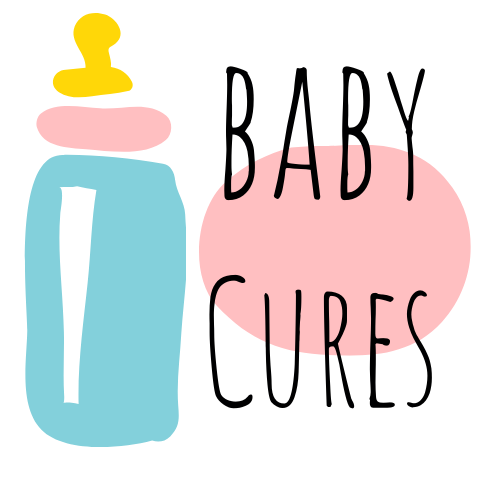Tanning during pregnancy is a topic that generates a lot of debate among expectant mothers and healthcare professionals. While some people believe that a little sun exposure can benefit both mother and baby, others caution against the risks of tanning during pregnancy. In this article, we’ll take a closer look at the risks and benefits of tanning during pregnancy and explore some alternatives for getting a tan safely.
The Risks of Tanning During Pregnancy
One of the main risks of tanning during pregnancy is the increased risk of skin cancer and other skin conditions. UV light, whether from the sun or a tanning bed, can damage the DNA in your skin cells, leading to skin cancer. According to the World Health Organization (WHO), people who use tanning beds are 75% more likely to develop melanoma, the deadliest form of skin cancer.
In addition to the increased risk of cancer, using a tanning bed or spending too much time in the sun can cause other skin problems, such as premature aging, sunburn, and eye damage. The intense UV light can damage the collagen in your skin, leading to wrinkles, age spots, and other signs of aging. It can also cause sunburn, which can be painful and increase your risk of skin cancer. Tanning beds and the sun can also harm your eyes, as UV light can damage the cornea and the retina.
There is also some evidence to suggest that tanning during pregnancy may negatively affect fetal development. According to a study published in the Journal of the American Medical Association, pregnant women who used tanning beds had an increased risk of giving birth to a child with a birth defect. More research is needed to fully understand the link between tanning and fetal development, but pregnant women need to be aware of the potential risks.
Finally, tanning during pregnancy can also have negative effects on postpartum skin. Pregnancy can cause hormonal changes resulting in skin conditions such as melasma (also known as “pregnancy mask”), characterized by dark, blotchy patches on the face. Tanning can exacerbate melasma and make it more difficult to treat.
The Potential Benefits of Tanning During Pregnancy
While there are risks to consider when it comes to tanning during pregnancy, there are also some potential benefits.
One of the main benefits of sun exposure during pregnancy is that it can help your body produce vitamin D. Vitamin D is an essential nutrient that helps your body absorb calcium and phosphorus, which are necessary for healthy bones and teeth. It’s also believed to have other health benefits, such as boosting the immune system and helping to prevent certain types of cancer.
Tanning can also have mood-enhancing effects. Many people find sun exposure can lift their mood and improve their overall well-being. This can be particularly beneficial for pregnant women, who may experience mood changes and increased stress due to hormonal fluctuations and other pregnancy-related challenges.
Finally, some people find that tanning can be relaxing and stress-relieving. Something about being outside in the sun and fresh air can be rejuvenating and help you unwind.
Alternatives to Tanning During Pregnancy
If you’re pregnant and want to achieve a tan, several alternatives are safer than tanning beds and prolonged sun exposure.
One option is to use self-tanning products, such as lotions, sprays, or mousses. These products contain ingredients that react with the top layers of your skin to give it a tanned appearance. While self-tanning products are generally considered safe during pregnancy, it’s important to choose a reputable brand and follow the instructions carefully. Some self-tanning products contain chemicals that can be harmful if inhaled or ingested, so it’s a good idea to use them in a well-ventilated area and to avoid getting them on your hands or in your mouth.
Another alternative to tanning during pregnancy is to get a spray tan. Spray tans are applied by a trained technician using a machine that sprays a fine mist of self-tanning solution onto your skin. While spray tans are generally considered safe during pregnancy, choosing a reputable salon and following any precautions the technician recommends are important.
Finally, you can also get a tan safely during pregnancy by getting moderate sun exposure during non-peak hours and protecting your skin with sunscreen and other protective measures. This might mean seeking out shaded areas, wearing a hat and sunglasses, and applying broad-spectrum sunscreen with a high SPF.
How to Protect Your Skin While Pregnant and Tanning

If you decide to tan while pregnant, it’s important to protect your skin. Here are some tips for keeping your skin safe while pregnant and tanning:
Use sunscreen with a high SPF: Sunscreen is your best defense against sunburn and skin damage. Choose a broad-spectrum sunscreen with a high SPF (30 or higher) and apply it to all exposed areas of your skin before you go outside.
Seek shade during peak hours: The sun’s rays are the strongest between 10 a.m. and 4 p.m., so try to limit your sun exposure during these times. Seek out shaded areas, or use an umbrella or beach tent to create your shade.
Wear protective clothing: Wearing a hat, sunglasses, and protective clothing can help to shield your skin from the sun’s rays. Look for clothing with a high UPF (ultraviolet protection factor) rating, which indicates how well the fabric blocks UV rays.
Conclusion
Tanning during pregnancy is controversial, and there are risks and benefits to consider. While some people believe that a little sun exposure can benefit both mother and baby, others caution against the risks of tanning during pregnancy. It’s important for pregnant women to be aware of the potential risks and to consult with their healthcare provider before deciding to tan.
If you decide to tan while pregnant, it’s important to protect your skin. This might include using sunscreen with a high SPF, seeking shade during peak hours, and wearing protective clothing. Several alternatives are also to consider, such as self-tanning products, spray tans, and safe sun exposure.
Ultimately, it’s up to you to decide whether or not tanning during pregnancy is right for you. Just be sure to research and make an informed decision about your tanning habits.

